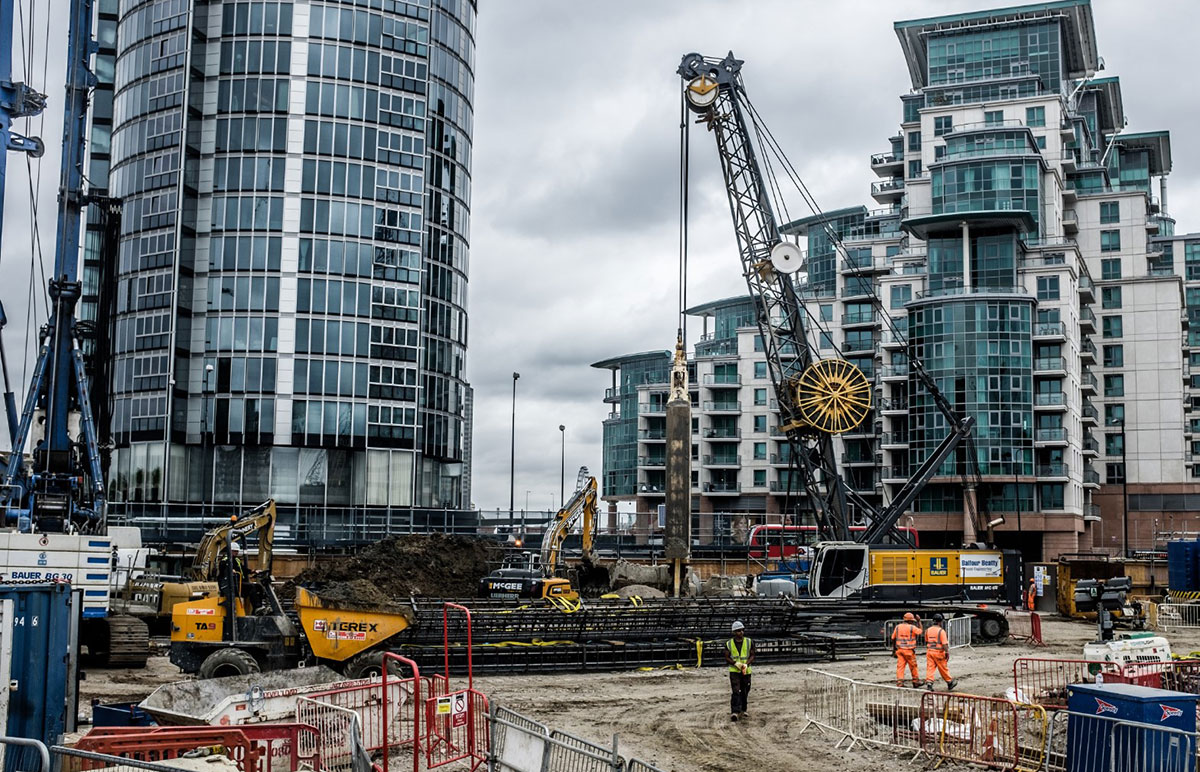Rumored Buzz on Geotheta
Rumored Buzz on Geotheta
Blog Article
How Geotheta can Save You Time, Stress, and Money.
Table of Contents3 Easy Facts About Geotheta DescribedSome Of GeothetaThe Main Principles Of Geotheta The Buzz on GeothetaWhat Does Geotheta Do?

They conduct website examinations, gather examples, perform lab tests, and assess data to examine the suitability of the ground for building and construction jobs - Geo Tech Engineering. Based upon their searchings for, geotechnical engineers supply suggestions for foundation layout, slope stability, retaining frameworks, and mitigation of geotechnical threats. They work together with various other specialists, such as engineers, architectural designers, and building teams, to make sure that geotechnical factors to consider are integrated into the general project design and implementation
By assessing the behavior and residential properties of soil and rock, they can identify potential geotechnical threats such as landslides, dirt negotiation, or incline instability. Their experience aids avoid failures or mishaps that can jeopardize lives and residential or commercial property. Right here are some comprehensive obligations and duties of a geotechnical designer: Website Investigation: Geotechnical engineers conduct site examinations to gather information on subsurface conditions.
They interpret the information to recognize the properties and actions of the soil and rock, including their strength, permeability, compaction features, and groundwater conditions. Geotechnical Analysis and Layout: Geotechnical engineers analyze the information collected during website examinations to analyze the stability and suitability of the site for building projects. They do geotechnical estimations and modeling to evaluate aspects such as birthing ability, settlement, incline security, side planet stress, and groundwater circulation.
Not known Details About Geotheta
Foundation Design: Geotechnical engineers play a vital function in creating foundations that can securely support the intended framework. They assess the dirt conditions and tons needs to establish the suitable structure kind, such as shallow structures (e.g., grounds), deep structures (e.g (https://triberr.com/geotheta)., stacks), or specialized techniques like soil improvement. They think about aspects such as negotiation limitations, birthing capacity, and soil-structure communication to create ideal structure styles
They examine construction strategies, display website activities, and conduct area evaluations to verify that the style suggestions are complied with. If unforeseen geotechnical issues develop, they analyze the scenario and give recommendations for remediation or changes to the style. Threat Evaluation and Reduction: Geotechnical engineers evaluate geotechnical dangers and dangers connected with the task website, such as landslides, liquefaction, or dirt disintegration.

Partnership and Interaction: Geotechnical designers function closely with various other experts associated with a project, such as architects, architectural designers, and building teams. Efficient communication and cooperation are necessary to integrate geotechnical factors to consider right into the overall project style and construction process. Geotechnical designers supply technical competence, response questions, and make sure that geotechnical requirements are fulfilled.
The 30-Second Trick For Geotheta
Below are some kinds of geotechnical designers: Foundation Designer: Foundation designers concentrate on designing and analyzing structures for structures. They analyze the dirt conditions, lots demands, and site characteristics to determine one of the most ideal structure type and layout, such as superficial structures, deep structures, or specialized strategies like pile foundations.
They evaluate the elements affecting slope stability, such as dirt properties, groundwater problems, and slope geometry, and develop techniques to avoid incline failures and alleviate risks. Quake Designer: Quake engineers focus on examining and developing structures to stand up to seismic pressures. They evaluate the seismic risk of a website, assess dirt liquefaction potential, and develop seismic layout requirements to make sure the safety and strength of frameworks during quakes.
They execute area screening, collect samples, and analyze the collected data to identify the soil homes, geologic formations, and groundwater problems at a site. Geotechnical Instrumentation Engineer: Geotechnical instrumentation designers focus on tracking and measuring the habits of soil, rock, and structures. They install and preserve instrumentation systems that monitor aspects such as dirt settlement, groundwater degrees, incline movements, and architectural variations to examine performance and offer very early warnings of possible concerns.
Geotheta Things To Know Before You Buy
They conduct examinations such as triaxial tests, consolidation tests, direct shear tests, and permeability tests to collect data for geotechnical evaluation and layout. Geosynthetics Engineer: Geosynthetics designers focus on the layout and application of geosynthetic materials, such as geotextiles, geogrids, and geomembranes. They use these products to boost dirt stability, strengthen slopes, give water drainage remedies, and control disintegration.
They have a tendency to be investigative people, which indicates they're intellectual, introspective, and analytical. They are curious, systematic, reasonable, analytical, and sensible. Some of them are likewise social, meaning they're kind, charitable, participating, patient, caring, valuable, compassionate, sensible, and pleasant - Geotechnical Engineers.
In the office atmosphere, geotechnical designers utilize specialized software application devices to execute computations, create styles, and analyze data. They prepare reports, evaluation job specifications, communicate with clients and team members, and coordinate job tasks. The office setup gives a conducive atmosphere for study, evaluation, and partnership with various other experts associated with the project.
Everything about Geotheta
They frequently visit task sites to conduct website investigations, examine geotechnical problems, and collect information for evaluation. These sees entail traveling to different areas, often in remote or difficult surfaces. Geotechnical designers might perform dirt tasting, conduct tests, and display building and construction activities to make sure that great post to read the geotechnical facets of the project are being executed appropriately.
Geotechnical engineers additionally function in specialized geotechnical laboratories. In these facilities, they perform experiments, do examinations on dirt and rock samples, and examine the design homes of the materials. Geotechnical laboratory engineers work thoroughly in these environments, handling screening tools, operating tools, and tape-recording information. They team up with other research laboratory staff to make sure precise and reliable testing outcomes.
Report this page